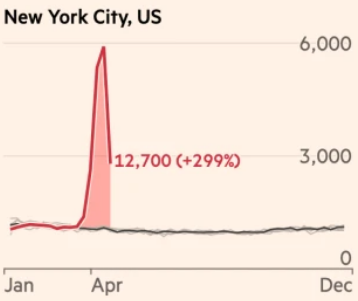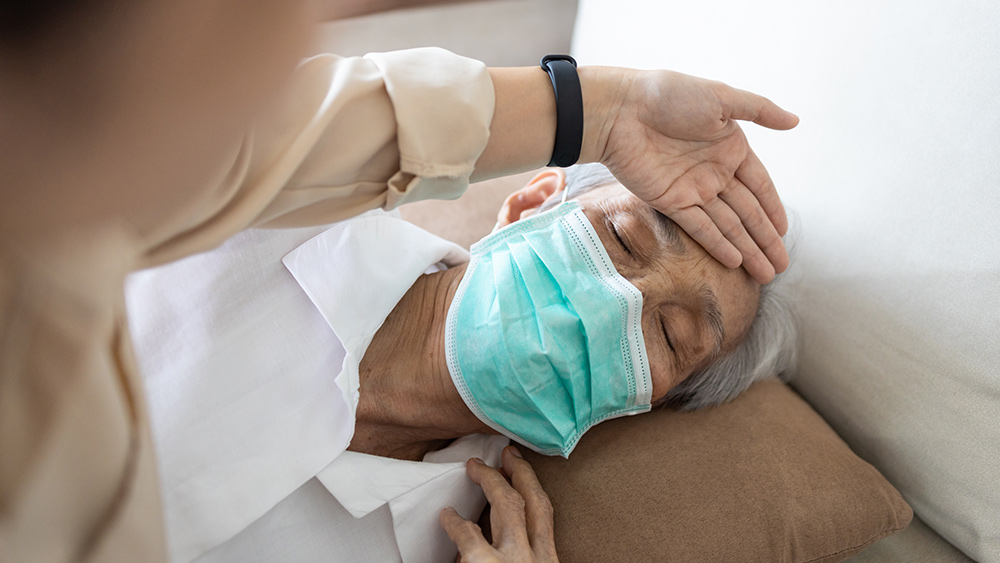Henry Ford health study finds hydroxychloroquine to be effective against COVID-19
07/07/2020 / By Ethan Huff

Yet another peer-reviewed research paper has demonstrated that the generic anti-malaria drug hydroxychloroquine, when used appropriately, can help to effectively treat Wuhan coronavirus (COVID-19) patients.
Published by the Henry Ford Health System in Michigan, the study used a large-scale retrospective analysis of patients examined between March 10 and May 2. It looked at more than 2,500 hospitalized patients across Henry Ford’s six area hospitals, evaluating how hydroxychloroquine affected patients.
According to Dr. Marcus Zervos, the division head of infectious diseases at Henry Ford, the goal was to determine whether or not hydroxychloroquine is effective for reducing the inflammatory response that was observed in many Wuhan coronavirus (COVID-19) patients early on in the pandemic.
“We thought that it would be important to us, or potentially important to use in our patients, (because) we didn’t have any other options that were proven,” Dr. Zervos is quoted as saying.
Of those patients who were treated with just hydroxychloroquine, only 13 percent died compared to 26.4 percent among those not given the drug. Overall, there was an 18.1 percent in-hospital mortality rate among patients over the age of 18, and with a median age of 64.
Another important detail uncovered as part of the study is the fact that the vast majority of people who test positive for the Wuhan coronavirus (COVID-19) and later die also have other underlying health conditions. This suggests that patients are dying with the virus, rather than from it.
“These diseases included chronic kidney and lung disease,” reports MLive.com. Mortality of hospitalized patients ranged between 10% and 30% worldwide.”
If this study had added zinc as well, the results would have been even better
Researchers also administered the antibiotic azithromycin as part of the trial, though it conferred minimal benefits. Compared to a 20.1 percent death rate among patients treated with both azithromycin and hydroxychloroquine, azithromycin treatment alone resulted in a 22.4 percent death rate. And this is compared to a 26.4 percent death rate among those treated with neither drug.
Interestingly, this paper did not look at a treatment combination of hydroxychloroquine plus zinc, zinc being a key factor in the potentiation of hydroxychloroquine as an effective remedy for the Wuhan coronavirus (COVID-19).
Previous studies similarly left out zinc, which in those cases resulted in conclusions of “no benefit” for hydroxychloroquine.
In this Henry Ford study, however, hydroxychloroquine alone was still determined to be better than nothing, suggesting once again that the leftist crusade against hydroxychloroquine is purely political.
While these researchers arrived at encouraging results all things considered, they still say that randomized, controlled trials are needed to confirm hydroxychloroquine’s potential benefits as a remedy for the Wuhan coronavirus (COVID-19).
“Currently, the drug should be used only in hospitalized patients with appropriate monitoring, and as part of study protocols, in accordance with all relevant federal regulations,” Dr. Zervos made sure to add.
After President Donald Trump announced earlier in the spring that hydroxychloroquine may be beneficial in treating the Wuhan coronavirus (COVID-19), many in his political opposition immediately started denigrating it. The Food and Drug Administration (FDA) also tried to intervene to block hospitals from giving it to patients.
In Michigan where this Henry Ford study was conducted, numerous health systems, including Michigan Medicine, Beaumont Health, and St. Joseph Mercy, decided all on their own to not use hydroxychloroquine in their Wuhan coronavirus (COVID-19) patients, or to discontinue use if they already were administering it.
“These studies that have been negative seem to get more attention,” Dr. Zervos noted, hinting at the political agenda behind the slandering of this particular drug. “But there are plenty of studies that have shown benefits and have not received as much attention, not just our study.”
To keep up with the latest Wuhan coronavirus (COVID-19) news, be sure to check out Pandemic.news.
Sources for this article include:
Tagged Under: coronavirus, covid-19, effective, Henry Ford Health System, hydroxychloroquine, infections, outbreak, pandemic, research, studies, Study, treatment



















